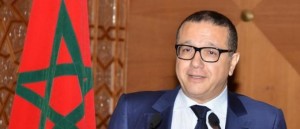The World Folio
Morocco’s financial sector expands into the wider region as new legislation is approved that will allow Islamic banking for the first time in the Kingdom.
In line with GDP expansion, the Moroccan banking sector has grown robustly over the past decade, weathering a financial crisis en route. During this 10-year period banking assets have tripled, loans to the economy have risen by 225%, while the non-performing loan ratio has declined by 14.2 percentage points to a stable 5.4%. Banking penetration has increased from around 25% to approximately 55%, as hundreds of new branches have opened across the Kingdom—the only North African nation with an investment-grade rating at Standard & Poor’s
“The results of the banking system are impressive,” says Mohamed Boussaid, the Minister of the Economy and Finance. “The use of banking facilities is progressing. Of course compared with other developed countries, the [banking penetration] rate remains relatively low, but it has improved considerably in recent years.
“We have a sound financial system, which is well managed and well supervised. As evidence it has hardly been affected by the financial crisis that has gripped the world; and today we have a banking system that is in very good health regarding its ratios and its management.”
Morocco’s banking industry is made up completely by conventional banks offering conventional banking services. With 95% of Morocco’s population of 34 million backing the introduction of banking that adheres to Shariah Law, it is surprising that up to now Moroccans have had no access to Islamic financial services like many other Muslim nations.
But that is all about to change: in late November the parliament approved legislation that will allow Islamic banking for the first time in the Kingdom. The new bill is set to shake up the an already highly competitive banking market; studies estimate that by 2018, Islamic banks could account for 3–5% of the total banking market and that investment in Shariah-compliant products could reach $7 billion.
While the government’s move to introduce Shariah-compliant banking will prove popular with Moroccans, the main reason for the introduction of Islamic finance bill is to attract more foreign investment. The new bill paves the way for the issuing of Morocco’s first sukuk (an Islamic sovereign bond) which is expected to attract a number of new investors from the Gulf, bringing a much-needed capital injection for investments in infrastructure and energy.
Banks from Kuwait, Bahrain and the United Arab Emirates have all expressed interest in entering the market when the bill becomes law.
According to the finance minister, the bill is also designed to strengthen regulatory environment by heightening the supervisory powers of Morocco’s central bank. “It is a law which grants Bank Al-Maghrib the authority to control micro-credit companies,” he adds. “Of course there are also in the pipeline other financial instruments that will be placed in the adopted system, including the OPCI, which are the collective real estate funds. There is also the completion of the law concerning Casablanca Finance City.”
Of all the financial centres, in all the world, Casablanca ranks 51st
The engine room of Morocco’s financial industry is Casablanca Finance City (CFC). Established in 2010 to become banking hub for Francophone Africa, this year the CFC has heightened its status amongst the world’s financial centres. In October it was named the ‘best financial center in the MENA (Middle East and North Africa) region’ at the Middle East Capital Markets Summit and Awards. In the 2014 Global Financial Centers Index released in September, Casablanca jumped 12 positions to 51st; it now ranks second in Africa behind Johannesburg and ahead of Mauritius. “[The CFS] is progressing very well,” says Minister Boussaid. “For a young financial center it is very important recognition.”
Casablanca has also been home to Morocco’s bourse since 1929. With market capitalization of roughly $60 billion; the CSE is one of the continent’s largest bourses. It is well developed and is one of the few regional exchanges that impose no restrictions on foreign participation. More than 30% of the capitalization is in the hands of foreign investors.
Earlier this year, the CSE signed an agreement with the London Stock Exchange, which “will bring technology” and “improve the CSE’s performance, transparency and the conditions of its transactions”, explains the finance minister. The strategic agreement will also support the expansion of CSE’s activity in to the North Western and Central African regions.
The CSE and CFC’s expansion into wider region is part of the overall vision of the Moroccan financial sector. “Our banking system has a vision and began its internationalization in a number of African countries,” says the minister. “We have three banks in particular that are now installed in Gabon, Mali, and Ivory Coast. The system is in the process of internationalization in a number of sub-Saharan countries. ”
By Jonathan Meaney








